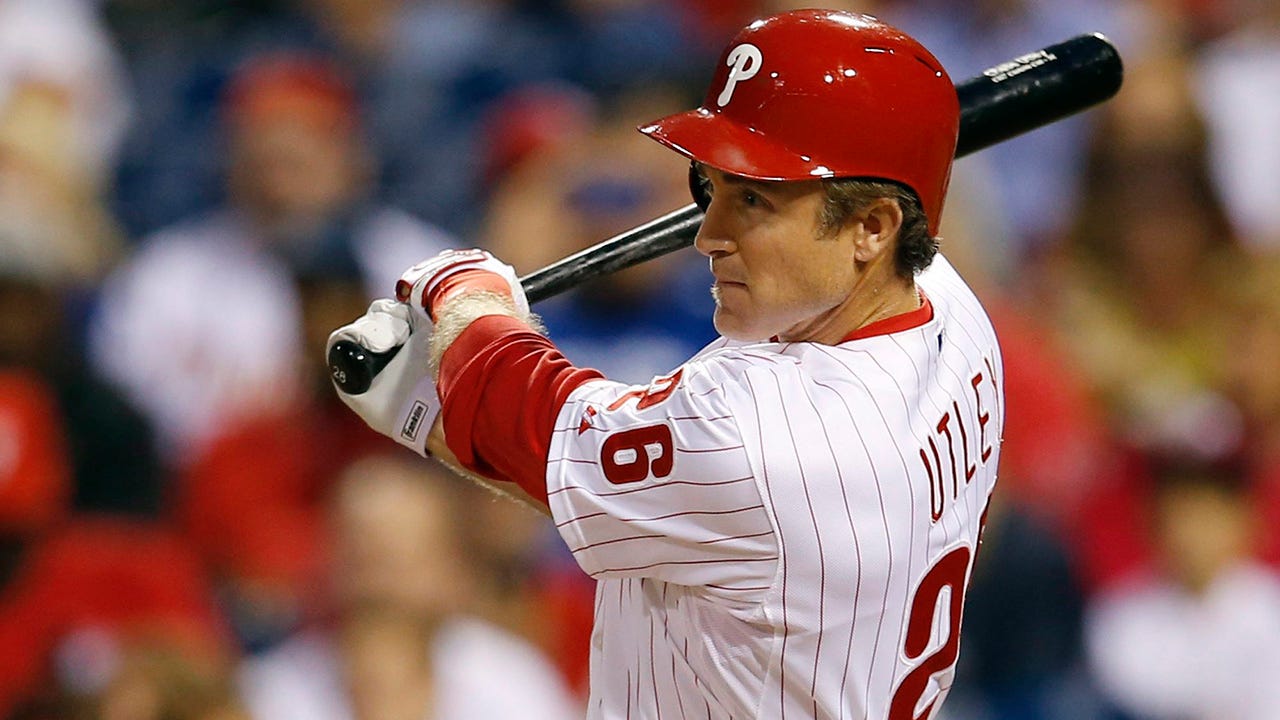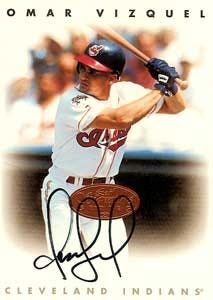Utley, Vizquel and How Different Values Hall of Fame Standards
Those voting for Omar Vizquel for Cooperstown are not voting for Chase Utley. Why is this? Utley's case is analytically based, while Vizquel's is based more traditional numbers--hits and Gold Gloves.
There is a distinct and interesting pattern I have observed in this year’s voting for the baseball Hall of Fame in Cooperstown. Those who are voting for Omar Vizquel are not voting for Chase Utley.
On the surface, these two players are similar. Both are middle infielders whose Hall of Fames rely heavily on valuing defense—Vizquel has the 9th most defensive WAR of all time; Utley has the 80th most. They are both considered highly intelligent players whose headiness and hustle were evidence that they “played the game the right way.”
Yet, among the 16 voters who have publicly stated they are voting for Vizquel, only four are voting for Utley. This is surprising not just because Vizquel and Utley are similar players, but because Utley is receiving votes from 45.2% of voters who have released a ballot so far. But among Vizquel voters, only 25% have selected Utley.
What explains this distinct voting pattern? I think it has to do with the fact that while Vizquel and Utley have similar profiles on the field, their Hall of Fame cases rely on valuing different things—analytical measures in Utley’s case, and longevity in Vizquel’s.
Peak Value and Chase Utley
The case for Utley’s enshrinement centers on a recognition of his broad set of skills: excellent defense (see above), even better baserunning (the 12th most baserunning runs of all time), his ability to get on base, often by getting hit by pitches (his 204 HBPs is 9th most all time) and subtle value from things like avoiding grounding into double plays.
Voting for Utley also requires a focus on peak value. Utley recorded 39.7 bWAR across five seasons from 2005 through 2009, recording more than 7 bWAR in each season. To give some perspective on how good that is, Utley is only 4.9 WAR behind Albert Pujols during these seasons, when Pujols won 3 MVPs.

Vizquel: Longevity at Average Value
The case for Vizquel is, essentially, defense. The three voters who wrote columns explaining their ballots all cited his defense—Kevin Kernan called him “a glove magician;” T.R. Sullivan said that “a premium shortstop is incredibly valuable to a team;” John Perotto said “Vizquel is the best defensive shortstop I have ever seen.”
But it seems the real case for Vizquel is longevity. Vizquel had a 16 season stretch where he made 500 or more plate appearances 14 times. And that leaves out eight other seasons he played. In the end, Vizquel played in 2968 games (13th most all time) and made 12,013 plate appearances (22nd of all time).
But the problem with Vizquel’s Hall of Fame case is that you did not want him to make those plate appearances. Vizquel’s career slash line was .272/.336/.352. Adjusting for his ballpark conditions and era, his .688 OPS is 18% worse than league average. Over the course of his career, Vizquel was 244 runs worse than an average major league hitter.
Vizquel’s value was with his glove. He created 129 fielding runs (the 31st most of all time) and he recorded 159 runs from his position (the defensive importance of shortstop reduces the average offensive contribution from the position).
Put those together with other metrics, and Vizquel produced 51 runs above average over the course of his career. For every 162 games that Vizquel played, he averaged 3 runs above average. How good is 3 runs above average? In the 2023 season, that would have ranked Vizquel 183rd highest among all major leaguers. It would put him in a tie with hitters such as Yan Gomes, Jeff McNeil, and Nathaniel Lowe. Those are useful players, but none was beating down the door of the All Star team.
It’s good to have useful players. Take Lowe for example, He has an OPS+ of 111, which is pretty average for a first baseman. But if you take average play for 161 games—which is what Lowe played in 2023—you get value from that. Lowe recorded 2.6 Wins above Replacement in 2023.
Vizquel’s career is very similar, even if he generated his value differently than Lowe. He had six seasons with a WAR between 2.0 and 3.0. Again, that’s useful for a team. But he had the same number of seasons with a WAR greater than 3.0. His career WAR high was 6.0 in 1999 when he had his peak offensive season.
Having a bunch of seasons of average or above average contributions is quite valuable once added up. Over the course of his career, Vizquel recorded 45.6 Wins Above Replacement.
That’s good, but compare it to Utley, who earned nearly as much (39.7 bWAR) in just five seasons. Utley of course played more than five season, and racked up 64.5 bWAR over the course of his career.
Different Values on Baseball Value
So Utley and Vizquel create value in different ways, and, as a result, they are receiving support from different types of voters. To vote for Vizquel, one must either greatly value longevity or reject the analytical analysis I have done here.
Prioritizing longevity makes one less likely to vote for Utley, who had a relatively short career. Only three expansion-era Hall of Famers (Mike Piazza, Kirby Puckett and Tony Oliva) were inducted with fewer than the 7,863 plate appearances Utley accrued. only a handful of Hall of Famers have fewer. If you value longevity and base hits—which is essentially a proxy for longevity—Utley is not your guy.
And if you are suspicious of analytical thinking—the kind that I used here to show that Vizquel’s bat took more runs away from his team than his glove saved—well, Utley is still not your guy. Utley has a high WAR total from doing lots of little things well (fielding, baserunning, getting on base). But by more traditional metrics, he is not a strong candidate. Utley accumulated only 1,865 hits in his career, never won a Gold Glove, stole only 154 bases, and his top finish in MVP voting was 7th.
Vizquel recorded 2877 hits and won nine Gold Gloves. He’s a candidate for those who rely on more traditional metrics, and frankly, for those who don’t want to balance hitting with fielding. As a result, the voting blocs for Utley and Vizquel are very different.





Personally, I am not sure I'd put either in the HOF. Utley was a good player with a decent peak. But not necessarily a HOF career. Vizquel was undoubtedly a glove wizard but, as illustrated, was not great at the plate. Perhaps it's unfair to punish his candidacy so much when we often look the other way for offensive juggernauts who cannot play a defensive position well or at all. But hey, that's what the DH is for.
Also, and I understand this is not the aim of this article and therefore wasn't covered, I can't help but wonder whether Omar Vizquel's off-field incidents (allegations of sexual harassment and domestic violence) hurt or bury an otherwise long-odds HOF chance.
Things are looking good for Wagner. The voting numbers I have seen early on for utley don’t look so good for this round